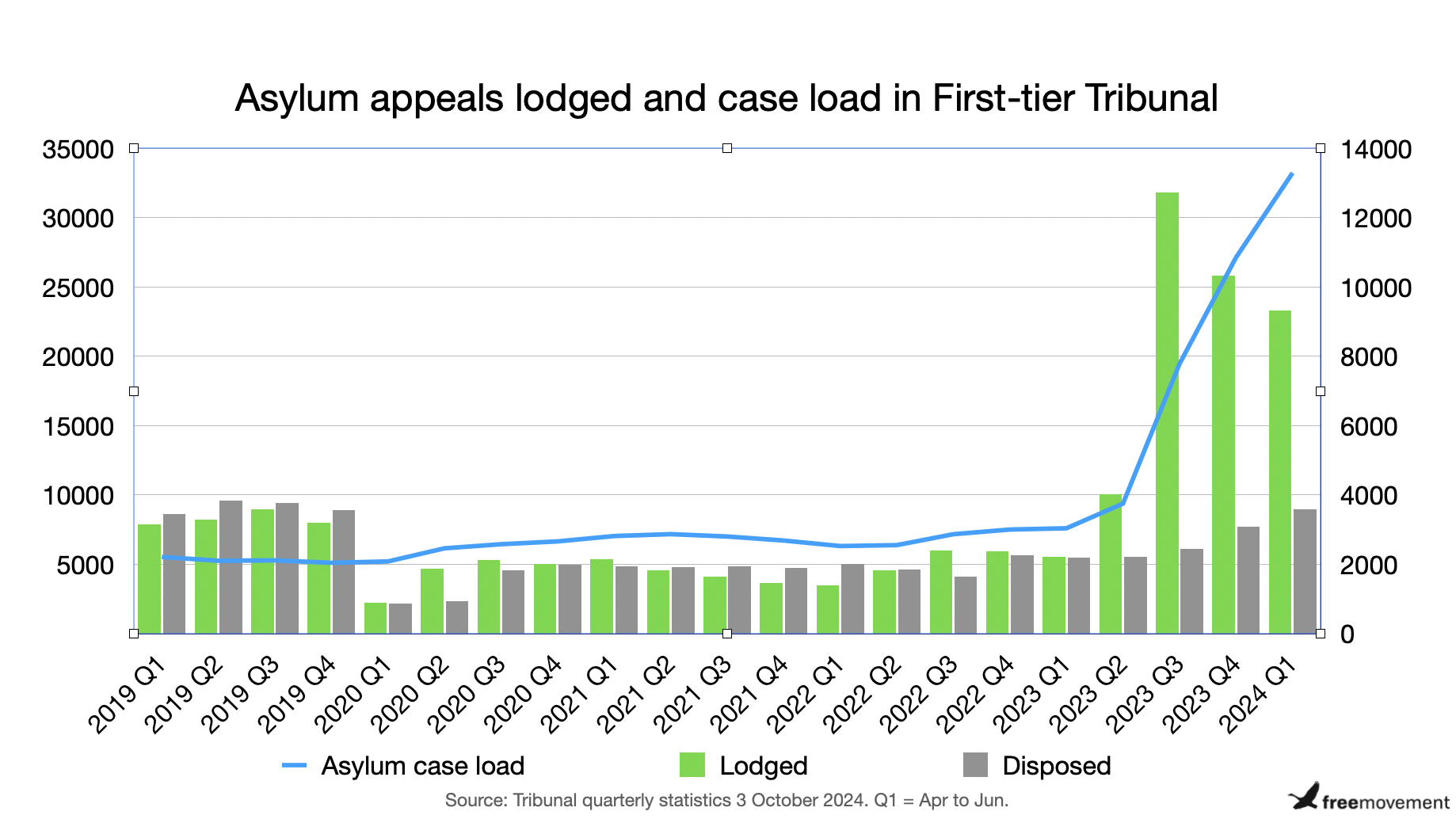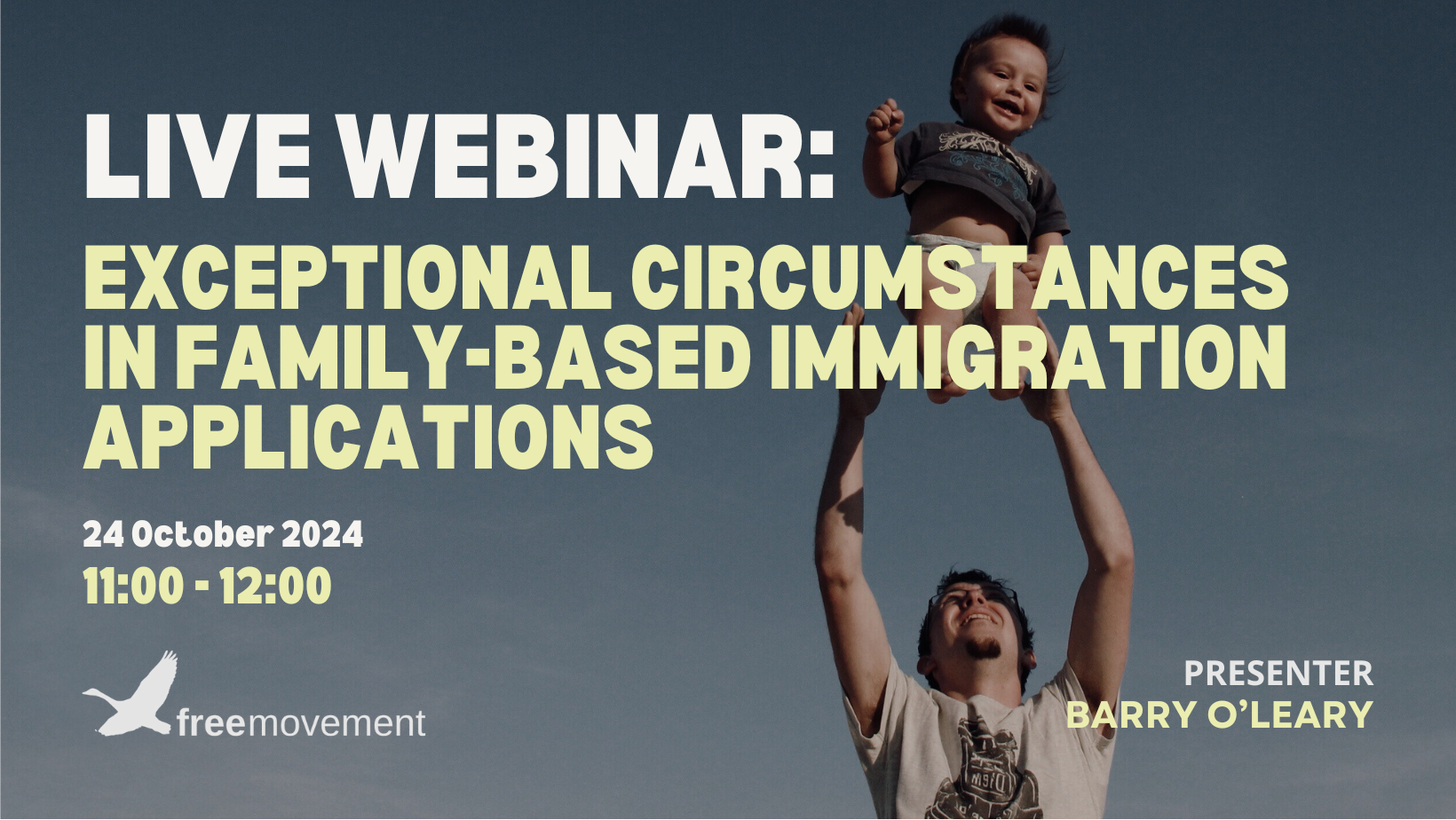By David Zuther – Authorized Affiliate
The Immigration Guidelines are supposed to be an exhaustive authorized framework for deciding who ought to be allowed to enter and keep within the UK. Ordinarily, if a non-UK citizen can’t present that they meet the necessities of one of many many classes of permission set out within the Guidelines, they will be unable to remain within the UK. Nevertheless, there could also be distinctive circumstances which imply that not permitting somebody to stay within the UK would breach their human rights or in any other case be thought-about ‘unjustifiably harsh’, even when they don’t qualify beneath the Guidelines. Discretionary Depart (‘DL’) is among the instruments the House Workplace can use to take care of such eventualities.
Discretionary Depart and Different Sorts of Immigration Permission
Discretionary Depart is one among a number of insurance policies in place to take care of the kind of distinctive case described above. It’s supposed to be a coverage of ‘last resort’, when an applicant is in any other case unable to acquire immigration standing within the UK. Because of this if a person qualifies for asylum or humanitarian protection standing, they need to be granted on that foundation and never obtain Discretionary Depart.
Many immigration choices have interaction an individual’s proper to respect for personal and household life, protected by Article 8 of the European Conference on Human Rights (‘ECHR’). Nevertheless, Discretionary Depart shouldn’t be at the moment supposed to cowl such instances. As a substitute, the House Workplace has, over time, tried to include Article 8 concerns into the Immigration Guidelines themselves. Provision for distinctive circumstances has been included in purposes beneath Appendix FM and Appendix Dependent Relative. Different instances with an Article 8 component are lined by Appendix Private Life.
What Conditions Are Lined by Discretionary Depart?
First, it ought to be famous that Discretionary Depart can solely be utilized from inside the UK. Second, the related House Workplace steering recognises that the appropriateness of granting Discretionary Depart is determined by all of the circumstances of a specific case. Within the phrases of the steering, the next are solely ‘broad categories’ of instances through which Discretionary Depart could also be related:
Article 3 medical remedy instances
Article 3 ECHR prohibits torture and inhuman or degrading remedy or punishment. Within the European Court docket of Human Rights’ interpretation, which has been accepted by the UK courts, Article 3 could also be breached if an immigrant with a critical well being situation is returned to a rustic through which they might be unable to entry important medical remedy. The brink for such claims is very high. The House Workplace has separate steering on assessing Article 3 medical remedy claims. The place the brink is met, go away will likely be granted in accordance with the Discretionary Depart coverage.
Different ECHR instances
The Steering goes on to state that Discretionary Depart ‘may be appropriate’ the place returning a person to their nation of origin would end in a flagrant denial of one other proper protected by the ECHR however which doesn’t qualify the person for humanitarian safety. Nevertheless, the Steering additionally notes that this may hardly ever be the case with out return additionally breaching Article 3.
Distinctive circumstances
Discretionary Depart can also be granted following consideration of paragraph 353B of the Immigration Guidelines. Paragraph 353B applies in two eventualities:
- Additional submissions have been made and the decision-maker has made an evaluation as as to if or not they quantity to a fresh claim; or
- A person has exhausted all rights of enchantment, no additional submissions are excellent, and a assessment is undertaken with a view to elimination.
In these circumstances, decision-makers are required to evaluate whether or not there are distinctive circumstances which make elimination from the UK not acceptable, having regard to the migrant’s character, conduct and associations (together with any legal document); compliance with the situations hooked up to any earlier grant of permission, short-term admission, and immigration bail; and the size of time they’ve spent within the UK for causes past their management after the refusal of their human rights or asylum declare. Paragraph 353B doesn’t apply to submissions constructed from abroad or in respect of people liable to deportation.
The place, following consideration beneath paragraph 353B, it’s thought-about {that a} grant of go away is acceptable, Discretionary Depart will likely be granted.
Exclusion and criminality instances
The House Workplace maintains a separate coverage, the Restricted Depart coverage, which applies the place somebody is both excluded from refugee standing in accordance with Article 1F of the 1951 Refugee Conference or topic to expulsion in accordance with Article 33(2) of the Conference however that particular person can’t be eliminated with out breaching the ECHR. The Restricted Depart coverage is meant to control all such instances, nonetheless, people who’re excluded from refugee standing or humanitarian safety or whose standing has ceased, been cancelled or revoked and who don’t fall inside the scope of the Restricted Depart coverage could also be thought-about for a grant of Discretionary Depart.
The place a person doesn’t come inside the scope of the Restricted Depart coverage, any legal historical past can nonetheless be taken into consideration according to Part 9 of the Immigration Rules or paragraph 353B(i) of the Guidelines. If a person with a legal document is granted Discretionary Depart as a result of distinctive circumstances of their case, that legal document could be a issue affecting the length of DL granted (see beneath on the situations of go away granted).
Different asylum instances
Lastly, the steering makes provision for instances not falling beneath the headings mentioned above. Nevertheless, this catch-all applies solely to candidates whose asylum declare has failed. For non-asylum instances, decision-makers are directed to the Leave Outside the Rules guidance.
Transitional preparations and former classes of Discretionary Depart
Over time, the scope of Discretionary Depart has developed considerably. It was beforehand used to handle varied forms of instances which have since been introduced inside the Guidelines or moved to separate insurance policies:
- From April 2003 to July 2012, people who couldn’t be eliminated with out breaching their Article 8 rights obtained Discretionary Depart;
- Till April 2013, unaccompanied asylum-seeking youngsters (UASC) who had been ineligible for asylum, humanitarian safety or some other type of go away however who couldn’t be returned attributable to an absence of ample reception preparations of their international locations of origin had been granted Discretionary Depart. Since April 2013, the instances of such youngsters are thought-about in accordance with paragraphs 352ZC – 352ZF of the Immigration Guidelines (often known as ‘UASC’ go away);
- Circumstances now falling beneath the Restricted Depart coverage had been handled beneath the Discretionary Depart coverage earlier than Restricted Depart was launched in September 2011;
- Earlier than 30 January 2023, grants of Discretionary Depart had been thought-about the place a person had (a) obtained a optimistic conclusive grounds choice by a reliable authority recognising them as victims of recent slavery, (b) made an asylum or safety declare or additional submissions based mostly, no less than partly, on a concern of re-trafficking, and (c) that declare had not but been lastly decided. From 30 January 2023, such conditions are handled by the framework set out in part 65 of the Nationality and Borders Act 2022.
Transitional preparations are in place for a few of these legacy instances.
Grant and Situations of Discretionary Depart
The size of permission granted beneath the Discretionary Depart will depend upon the actual circumstances of the applicant. The steering units out an expectation that go away is to not be granted for greater than 30 months (2 ½ years). Nevertheless, each shorter and longer (together with ILR) grants are doable, if mandated by the actual info of a case. Additional grants of Discretionary Depart will depend upon whether or not the explanations which led to the preliminary grant stay in place.
Holders of Discretionary Depart are allowed to work and entitled to entry public funds.
The steering notes that consideration of grants of go away for longer than 30 months will doubtless most frequently be related within the case of kids. It’s because the House Secretary has a statutory obligation (beneath part 55 of the Borders, Citizenship and Immigration Act 2009) to take account of the necessity to safeguard and promote the welfare of kids within the UK when exercising immigration powers and features.
People residing within the UK with Discretionary Depart are typically eligible to use for settlement/indefinite go away to stay as soon as they’ve accomplished 10 years’ steady residence. Nevertheless, people are required to point out that the grounds on which they obtained Discretionary Depart proceed to use once they apply for settlement.
As soon as granted, Discretionary Depart could be ‘curtailed’ (i.e. cancelled). The place a person’s conduct is legal, a menace to nationwide safety, or brings them inside the grounds of exclusion in Article 1F of the Refugee Conference (whether or not this conduct takes place after the grant of Discretionary Depart or occurred beforehand however solely involves gentle after Discretionary Depart has been granted), Discretionary Depart could also be curtailed, and the House Workplace might both pursue deportation or, if that isn’t doable, grant Restricted Depart as a substitute. Like different types of go away, Discretionary Depart could be curtailed whether it is discovered to have been obtained via deception or if the person in query turns into liable to deportation.
Conclusion
Discretionary Depart is a posh matter. A lot is determined by the circumstances of a person’s case. The steering is specific that it’s supposed for use ‘sparingly’, and in ‘exceptional’ instances solely. Any claims for DL are thus prone to require intense preparation and skilled recommendation.
Contact our Immigration Barristers
For skilled recommendation in relation to a UK visa application or immigration appeal, contact our immigration barristers on 0203 617 9173 or full our enquiry type beneath.








